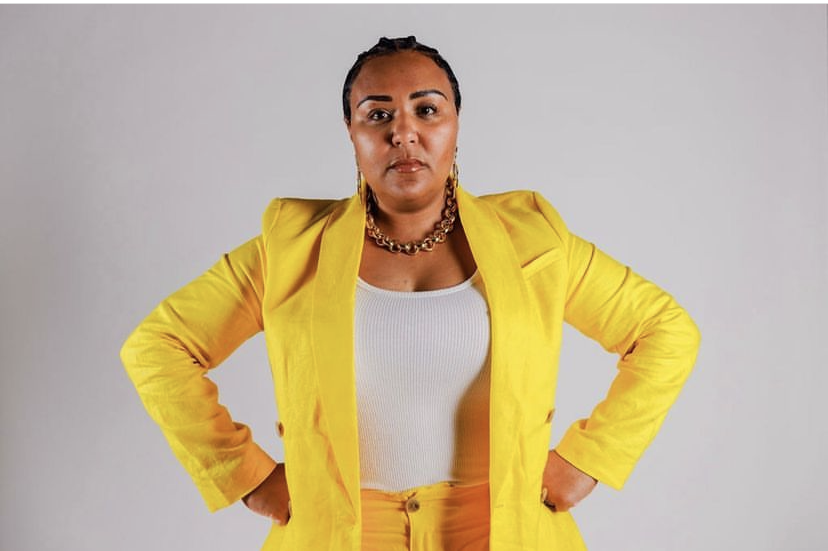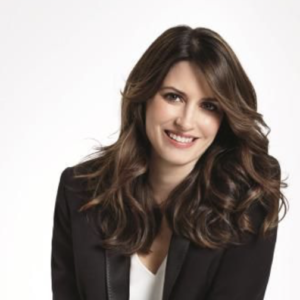Anybody who can turn the word “fart” into an acronym for her mental health journey is probably someone who should write for a living. Good thing, then, that Achea Redd has penned three self-help books, runs a mental health blog, communicates with a robust community through her social channels, and gives motivational keynote speeches for corporations and nonprofits.
But back to “fart” (because it’s not just Chads who find the word funny). When Redd first started her blog, it was called “Real Girls Do F.A.R.T.” The letters stood for: Fearless. Authentic. Rescuer. Trailblazer. “These words were crucial in the first part of my journey,” says the 42-year-old mother of two, who was diagnosed with general anxiety disorder in 2016, atypical anorexia/body dysmorphia in 2018, and major depressive disorder in 2020…”right before the pandemic hit,” she says.
Now called “Authentically Achea,” the blog blends Redd’s stories—from her self-love path to managing kids’ school anxiety—with those of others who have a mental illness (for example, one woman writes about figuring out her antidepressants when pregnant). They’re all thoughtful, vulnerable, and personal. Isn’t that, after all, what “authentic” stands for? There are six definitions at Dictionary.com (the last is a certain type of music, who knew?). To Redd, authentic means this: “being true to your convictions unapologetically, no matter the cost.”
Here, she does the Q-and-A thing with us, sharing her take on mental health in the Black community, how she views eating disorder “recovery,” and her favorite coloring app for self-care.
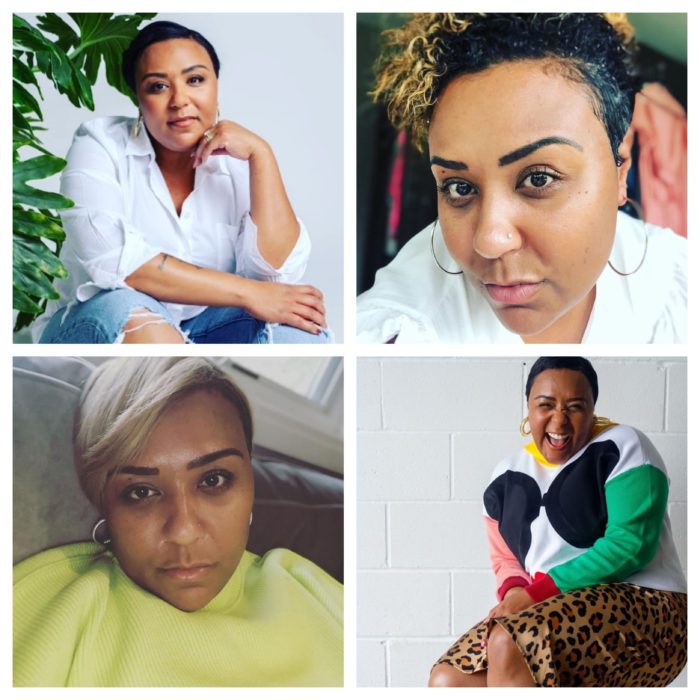
Q: How do you manage your GAD and depression? Are you taking medication? Get therapy? Any details are welcome.
I do all the things lol! Honestly, no mental health recovery plan is cookie-cutter and everyone is different. For me, a combination of therapy and medication managed by a psychiatrist has been a game-changer.
Q: Day to day, beyond medication and therapy, how do you cope when you’re feeling particularly anxious or depressed?
I exercise regularly, take supplements, hydrate, and eat throughout the day. Sometimes, I journal if things get too hectic in my brain, and I color almost every day on my phone using a coloring app called Happy Color.
I recently started training for a 5k, and the endorphins that are released from running have been amazing for me and given me a ton of energy and motivation. I’m really big on dance parties to ’90s music or playing music in the car so loud I can’t think of anything but the lyrics.
Q: Favorite ’90s song?
“Sittin’ Up in My Room” by Brandy.
Q: What do you think is the biggest misconception about mental health issues?
That you get to decide/manifest whether you have them or not. I definitely think we get to choose how to move through it or cope with it. But the disorder or illness is not a choice.
Q: Your site says you had a “full-blown nervous breakdown.” What caused it, and how did you get treatment?
I’ve actually had three to date. Two were very severe. When you don’t deal with life, it will deal with you at some point. I stuffed and suppressed as much as my body would allow me to, and then eventually there was no space left to put anything. So it all exploded to get my attention. I went to therapy once a week, saw a doctor to manage medications. After I got out of the critical place, I started to add in journaling, meditation, coloring, etc.
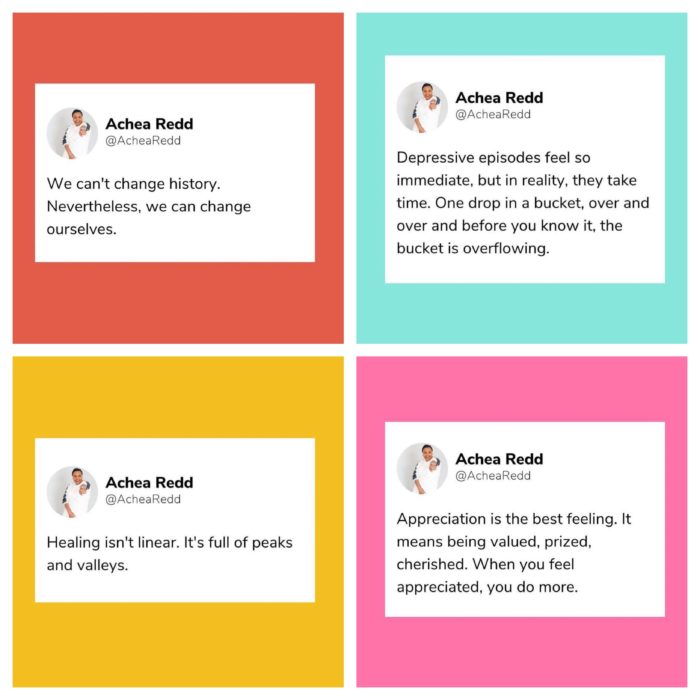
Q: You once posted that when you were growing up, you were told to “pray away” mental health issues and that it’s a “white girl’s disease.” Can you explain?
I am a Black woman, and preacher’s daughter. I’d like to say those two things are a double-edged sword, especially in the mental health world. Black culture doesn’t allow for women to be “weak” or spend time crying about their problems. From an early age, we are raised to be strong and to learn to survive at any cost, even at the expense of our mental health. Growing up around my other Black girlfriends, if you were sensitive or cried you were made fun of and called a “white girl.” So, when someone would say they were sad or nervous, it was frowned upon because the expectation was to be more resilient than that.
Q: Do you still feel like not enough light is shed on the mental health issues of multicultural communities?
I definitely think mental health is being discussed more, but it often stops there, with no real plan for action, which ultimately is not helpful.
Q: How do you think we can all help change how mental health conditions are stigmatized in marginalized communities?
Your question is a loaded one that would take up more space than we have. However, I will say that everyone needs to do their part by advocating on their level of influence. Awareness and education will be and are crucial.
Q: Do you consider yourself “recovered” from your past eating disorder (ED)?
I am not recovered completely. I have atypical anorexia. My brain still receives messages from “ED”; however, I don’t “obey” him. I’m not sure outside of a miracle there is ever full recovery from an eating disorder. I do believe in miracles, though, so it could happen. Most people, when they say they are recovered, they are referring to the dismantling of their previous relationship with food, their bodies, exercise, and behaviors regarding meals.
Q: With an ED, are there particular things that trigger you? Social media seems like a minefield.
Triggers for me look a lot like certain people or places. Yes, social media is the gasoline, but comparison is the fire that has been burning for years. Social doesn’t bother me as much as people may think. I’m a people-pleaser by nature, so of course I want my followers to be happy with my content. When I lose followers and I think that my content is amazing, it stings me a bit. That’s honest.
Q: You’ve written three books. Your new one, The Precipice of Mental Health, is your personal story, yes? What do you hope to achieve with the book? 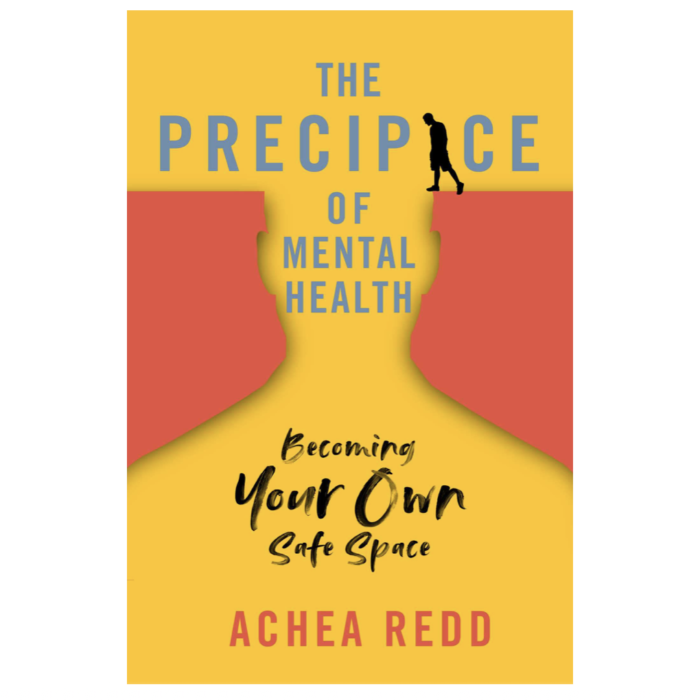 My new book is my favorite of all three of them. More than anything, I want people to learn how to become less codependent, relying on others only for safety and security. I want the reader to become a safe haven within themselves. This goes beyond self-love. It’s more about trusting yourself and learning that even if the whole world collapsed around you, you would be okay.
My new book is my favorite of all three of them. More than anything, I want people to learn how to become less codependent, relying on others only for safety and security. I want the reader to become a safe haven within themselves. This goes beyond self-love. It’s more about trusting yourself and learning that even if the whole world collapsed around you, you would be okay.
Q: What’s your one best tip to start trusting yourself when you feel like you can’t?
One foot in front of the other, day by day, one step at a time. Keep moving forward even if you are scared to mess up. The reality is you will mess up, because you are human. You are supposed to make mistakes. That’s how you grow.
Q: If you had to give the one best tip or thing that most resonates for people from each of your books, what would it be?
Be Free. Be You. was my way of saying, “Hello, world, I’m ready to walk in my purpose and show you by example how to do the same thing, even if people think you’re nuts… GO FOR IT!”
I wrote Authentic You: A Girl’s Guide to Growing Up Fearless and True when I was doing a lot of healing my inner child. Everything was written in a way I needed to hear it as a teen girl.
The Precipice of Mental Health is the culmination of every step of my journey thus far, but also pointing to the concept that even when you think you’ve got it figured out, life happens and you are humbled quickly by it. That said, when everything around you crumbles, do you have a space to come home to within yourself? Are you your own safe place?
Q: Do you talk to your kids about mental health? How do they respond?
My children are 15 and 11, and I am very honest about my struggles, triumphs, and journey. They are very intuitive and smart little humans, so they have the ability to comprehend that is very unique.
Q: How do you parent when you’re feeling anxious or depressed?
The parenting thing while I’m in a depressive or anxious episode is still hard for me. I haven’t mastered it yet, but I will say I overcommunicate what’s happening so they know not to take it personally. I have worked hard to build a strong network to help me when those relapses happen, so I rely a little more on them during those times.
Q: What is your opinion of self-care? Doesn’t have to be an $800 spa day, but how do you care for yourself? Do you believe makeup and skin products can lift your spirits?
I think self-care is a must, but the definition is way too pigeonholed and trendy at the moment. I have no problems with spa days or great face masks; however, when you are truly depressed, those don’t do the trick. My concern is that the current messaging can be misleading and further frustrating for those who try that and it doesn’t work. We need a self-care tool box that goes from the simplest mood-booster to the least simple one.
I don’t use skin care to boost my mood, honestly. I use skin care to care for my skin and it stays there. That said, what works or doesn’t for me may be completely different and I’m ok with that.
Q: Do you think self-care and self-love are different?
I do, but I prefer to call it self-respect. I’m a firm believer that the relationships in our life are crafted by the relationships we have with ourselves. The way we treat ourselves and how we allow others to treat us are directly correlated to each other.
Self-care is just for that…how we care for our needs, bodies, etc. The range in self-care is huge. For example, self-care can be as simple as treating yourself to a massage or, at the other end of the spectrum, having a good cry when you are sad. Both activities are self-care, but true self-care in its essence is attuning to what you or your body needs in the moment.
Follow Achea Redd on Instagram at @achearedd.
Angela Aguierre: https://www.millennialmija.com/
Mayda Del Valle: Poet. Performer. Teaching Artist. https://www.maydadelvalle.com/home
Season of Self Workshop Series: workshop series called Season of Self
